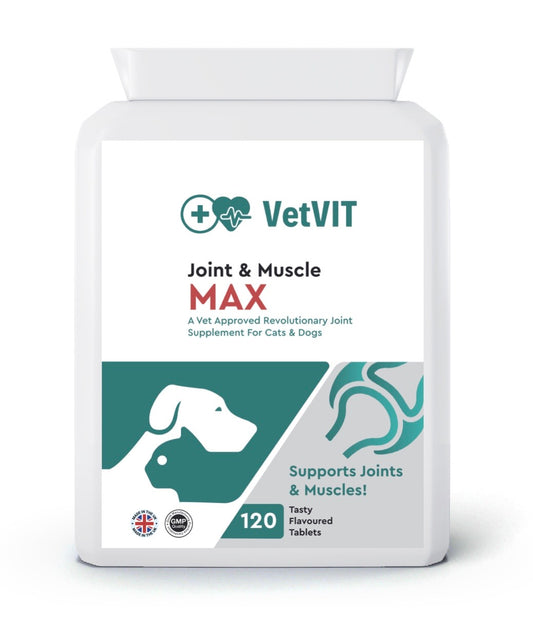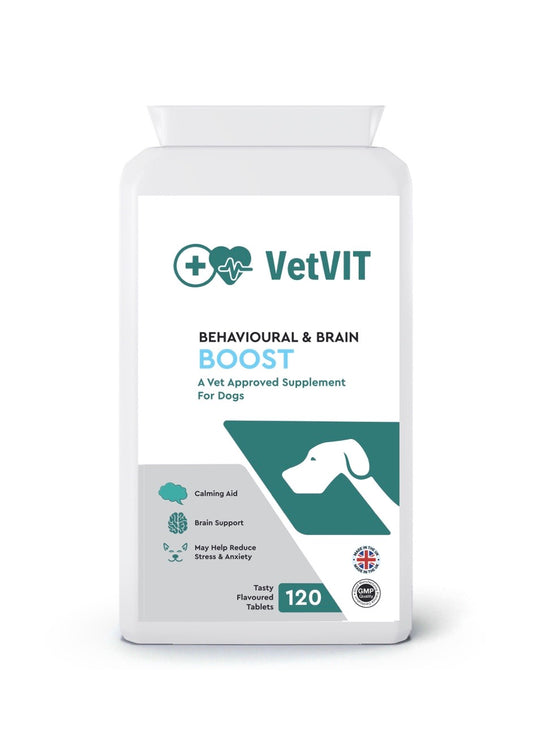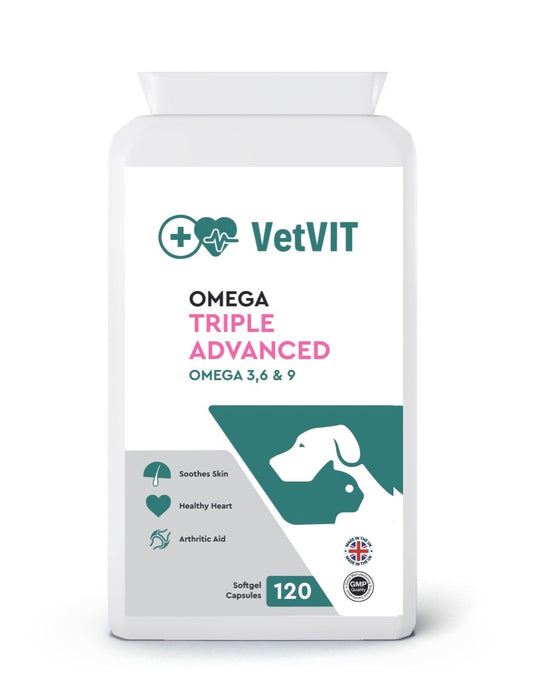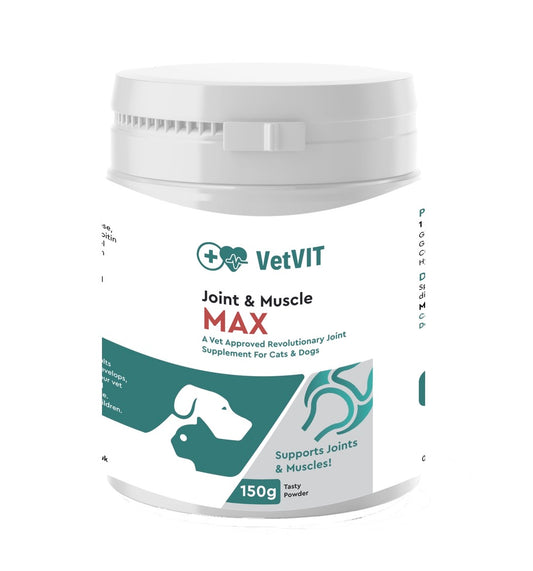As a dog owner, you want nothing but the best for them. You give them the best food, toys, and love possible. But have you considered adding probiotics to their daily routine? They may sound like something only humans need, but they could also benefit our four-legged friends! In this ultimate guide on probiotics for dogs, we'll cover everything you need to know about these beneficial bacteria and how they can improve your pup's overall health and well-being! So grab a leash and let's take a walk through the wonderful world of probiotics for dogs!
What are probiotics for dogs?
Probiotics are live microorganisms that help maintain a healthy balance of bacteria in the gut. Just like humans, dogs also have a complex system of good and bad bacteria in their digestive tract. Probiotics can help support the growth of beneficial bacteria in dogs and keep their gastrointestinal system functioning properly.
There are several strains of probiotics that can benefit your dog's health, such as Lactobacillus acidophilus and Bifidobacterium animalis. These strains can provide numerous benefits to your dog's overall health by improving digestion, reducing inflammation, enhancing immune function, supporting oral health, and even promoting healthy skin!
In addition to improving gut health and boosting immunity, probiotics for dogs may also improve nutrient absorption from food which leads to better energy levels throughout the day! It's important to note that while probiotics offer many potential benefits for your dog’s wellbeing; they should not replace any prescribed treatment or medication.
What are the signs your dog needs probiotics?
If you're a dog owner, it's important to watch out for signs that your furry friend may need probiotics. Here are some things to look out for:
If your dog has been experiencing digestive issues such as diarrhoea or constipation on a regular basis, this could be an indicator that they need probiotics in their diet. This is because probiotics help regulate the gut microbiome and promote healthy digestion.
Another sign that your dog may benefit from probiotics is if they have been prescribed antibiotics recently. Antibiotics can disrupt the natural balance of bacteria in the gut, which can lead to digestive issues and other health problems.
Additionally, if your dog has a weakened immune system or has been under stress due to changes in routine or environment (such as moving house), this can also affect their gut health and make them more susceptible to infections and illnesses.
Keep an eye out for any changes in behavior or mood - dogs who are feeling unwell may appear lethargic or less interested in food than usual.
It's important to pay attention to your dog's overall health and wellbeing so you can identify any potential issues early on and take steps to address them.
What are the benefits of probiotics for dogs?
Probiotics for dogs offer a wide range of benefits. One of the most significant is improved digestion and gut health. Probiotic supplements contain beneficial bacteria that protect your dog's digestive system, help break down food, and reduce inflammation in the gut.
Another benefit of probiotics for dogs is their ability to boost immune function. By supporting healthy gut flora, probiotics can help strengthen your dog's immune system and provide protection against harmful pathogens.
In addition to these benefits, probiotics have been shown to alleviate allergies in dogs by reducing inflammation throughout the body. This is particularly helpful for dogs with skin allergies or those prone to itchy skin.
Probiotics may also aid in weight management by improving metabolism and regulating appetite. They can even improve cognitive function in older dogs by reducing age-related cognitive decline.
Incorporating probiotics into your dog's diet can lead to improved overall health and wellness. However, it’s important to consult with your veterinarian before starting any new supplement regimen for your furry friend.
Do probiotics really help itchy dogs?
Itchy dogs can be a real pain, both for the dog and their owner. There are many reasons why a dog may be itchy, such as allergies or skin infections. However, probiotics have shown to benefit dogs with itchy skin.
Probiotics work by promoting healthy gut bacteria in your dog’s digestive system. This helps to strengthen their immune system and reduce inflammation throughout their body. By reducing inflammation, probiotics may help alleviate itching in dogs caused by allergies or other inflammatory conditions.
Additionally, studies have found that certain strains of probiotics can improve the overall health of a dog's skin and coat. This may also lead to less itching and scratching.
While probiotics may not completely eliminate all instances of itchiness in dogs, they have been shown to provide some relief for those suffering from various causes of itchiness.
Do probiotics help dogs with sensitive stomachs?
Dogs with sensitive stomachs can be challenging to take care of. They may suffer from frequent diarrhoea, vomiting, or flatulence. It's a common problem among many dogs and can be caused by various factors such as poor diet, stress, and more.
Probiotics have been known to help improve the digestive system in dogs with sensitive stomachs. Probiotics are a type of healthy bacteria that helps balance out the harmful bacteria in the gut.
By adding probiotics into your dog's diet, it can help improve their overall gut health and reduce inflammation in their intestines. This allows for better absorption of nutrients from food which will lead to improved digestion and fewer gastrointestinal issues.
Not all probiotics work the same way for every dog though. Some strains might not work effectively on some pups while others might work wonders on them! Therefore,it is important to choose a quality probiotic supplement that contains specific strains beneficial for your furry friend's digestive system.
It’s also important to note that if you suspect any underlying medical condition causing your pup’s sensitivity like pancreatitis or inflammatory bowel disease (IBD), then consulting a veterinarian should be prioritized before giving any supplements including probiotics.
Incorporating high-quality probiotics into your pet’s routine could potentially alleviate gastrointestinal difficulties associated with sensitive stomachs making meal times less stressful and more enjoyable for both you and your canine companion!
Do probiotics for dogs firm up stools?
Having a dog with loose stools can be frustrating and uncomfortable for both the pet owner and the pup. While there are several reasons why this could happen, including infections or dietary changes, probiotics have been known to help firm up dogs' stools.
It's important to note that not all probiotic strains will have this effect on your dog's stool consistency. Look for products containing Lactobacillus acidophilus or Bifidobacterium animalis, which are specifically known for their ability to regulate bowel movements.
While probiotics aren't a guaranteed solution for every case of loose stool in dogs, they're certainly worth considering if you're looking for ways to help regulate their bowel movements naturally.
Should you give dogs probiotics everyday?
Probiotics are essential for maintaining a healthy gut in dogs, and giving them regularly can be beneficial. However, it is important to note that not all dogs require probiotics every day.
If your canine friend has digestive issues or suffers from stress-related gastrointestinal problems, then adding a daily dose of probiotics to their diet could help alleviate these symptoms. Probiotics have been known to improve the immune system and protect against harmful bacteria as well.
It's also worth noting that if you change your dog's diet frequently or give them antibiotics often, then they may benefit from consistent probiotic supplementation. These factors can disrupt the natural balance of good bacteria in their gut.
On the other hand, if your dog is already healthy and does not suffer from any digestive issues, giving them probiotics every day may not be necessary.
Whether or not you should give your dog probiotics every day depends on their individual needs and health conditions. Be sure to monitor their response closely and adjust accordingly based on their reactions.
How to choose the right Probiotic for your dog
Choosing the right probiotic for your dog is essential to ensure that they receive maximum benefits. Here are some factors you should consider when selecting a probiotic for your furry friend:
1. Type of strain - Different strains of bacteria have different functions, so it's important to choose a probiotic with strains that target specific health concerns in dogs.
2. CFU count - The Colony Forming Units (CFU) measure the number of active microorganisms present in each dose of probiotics. A higher CFU count means more beneficial bacteria and better results.
3. Quality control - Choose a brand that follows strict quality control standards to ensure safe and effective products for your dog's health.
4. Packaging & Storage requirements – Always check if the packaging suits storage conditions as Probiotics can be sensitive to temperature changes
5. Safety – Check if there are any potential side effects associated with the product before giving it to your dog.
Taking these considerations into account will help you select an appropriate probiotic supplement for your furry friend to achieve optimal gut health!
How to give your dog Probiotics
Once you've chosen a probiotic supplement, the next step is figuring out how to give it to your dog. Some supplements come in capsule or tablet form, which can be given whole or opened up and sprinkled over food. Others may be chewable or come in powder form that can be mixed into wet food.
It's also important to pay attention to dosing instructions on the supplement packaging. Giving too much probiotic at once could upset your dog's stomach or cause diarrhea.
One way to help ensure successful digestion is by slowly introducing the probiotics into your dog's diet over time. Start with a small amount and gradually increase until they are receiving the recommended dose based on their weight.
Remember that consistency is key when it comes to seeing results from probiotics for dogs. It's best if you make giving them part of your daily routine so they receive regular benefits from these helpful microbes!
Conclusion!
After reading this ultimate guide on probiotics for dogs, you should have a good understanding of what probiotics are and the benefits they can provide to your furry friend. However, it's important to keep in mind that not all dogs may need probiotics and consulting with your veterinarian is always recommended before starting any new supplement regimen.
Dr. Alan MRCVS





